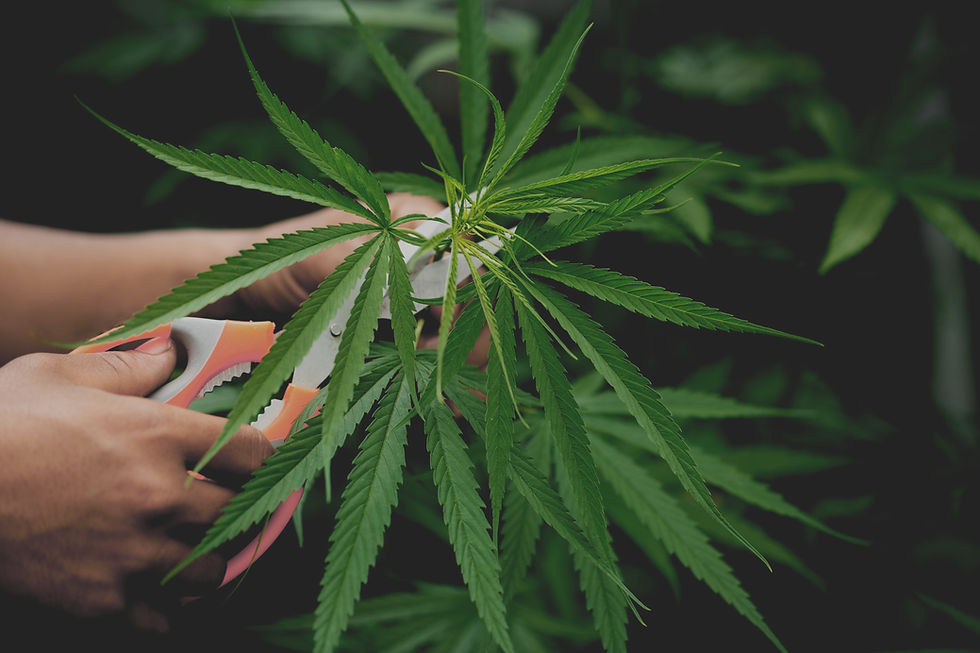Can Marijuana Be Fatal?
While there are no documented cases of cannabis causing death directly, using marijuana still carries risks that shouldn’t be overlooked.
As marijuana becomes increasingly socially acceptable and more states in the U.S. legalize its use, questions about its safety naturally arise.
Many people perceive marijuana as harmless, but learning more about its effects and potential risks can help you make informed decisions about whether it’s the right choice for you.
Is Marijuana a Gateway Drug?
The term “gateway drug” is often associated with marijuana, and research presents mixed findings on this topic. Some studies suggest marijuana use frequently precedes other drug use, while others argue that most marijuana users do not progress to using harder substances.
Several factors can influence marijuana use, including family history, mental health, and social dynamics. For some, marijuana is a way to bond with trusted friends, while others may use it due to peer pressure or to enhance their social standing. This issue is particularly relevant among teenagers. Research indicates that marijuana use during adolescence can heighten the risk of developing an addiction later in life.
Is Marijuana Addictive?
The risks of marijuana are often downplayed due to its medicinal benefits. While ongoing research is needed to answer questions like "Is marijuana deadly?" current findings confirm that marijuana can indeed be addictive.
Several factors can increase the likelihood of developing marijuana addiction. For instance, recent studies suggest a genetic predisposition might play a role. Dr. Arpana Agrawal, a psychiatry professor at Washington University School of Medicine, highlights how public perception can hinder treatment:
"Although many consider marijuana to be less addictive than other drugs, our findings confirm that people can become dependent on cannabis and that cannabis use disorder has genetic and biological underpinnings."
The level of THC consumed is another critical factor in marijuana addiction. THC, a primary cannabinoid in marijuana, is present in increasingly potent forms in many modern cannabis products, including synthetic cannabinoids. Regularly consuming high levels of THC or other cannabinoids can significantly elevate the risk of addiction.
Other factors influencing marijuana addiction include:
The widespread perception of marijuana as a low-risk substance
The influence of media and social media
Peer acceptance and pressure
A general tendency toward risk-taking behaviors, particularly in teens
Recognizing these risks and staying informed can help mitigate the potential for addiction.
Potential Risks of Smoking Marijuana
Marijuana offers a variety of benefits, such as managing chronic pain and aiding digestion. However, like any substance, it carries the risk of misuse. To stay safe, it’s important to be aware of the potential risks associated with smoking marijuana:
Learning and Memory Issues: Regular use can impair memory, reduce impulse control, and hinder your ability to learn.
Chronic Cough: Smoking any substance, including cannabis, can inflame the lungs. Frequent marijuana use may lead to a persistent cough.
Respiratory Infections: Smoking introduces harmful toxins into the lungs, which over time can result in lung damage and conditions like chronic bronchitis.
Mental Health Concerns: Studies suggest a connection between heavy marijuana use and mental health challenges, such as anxiety, depression, and temporary psychosis.
If you’re using marijuana for medical reasons, following prescribed guidelines and maintaining controlled usage can minimize the risk of misuse and its associated harms.
Can You Overdose on Marijuana?
Yes, it is possible to overdose on marijuana, although such instances are rarely fatal. Experts note that while overdosing and dying directly from cannabis use is extremely uncommon, marijuana use can still pose significant health risks. To date, there are no documented cases of someone dying solely from marijuana consumption.
However, marijuana has been associated with various health complications, such as cardiovascular disease, lung cancer, traffic accidents, and severe intoxication, which can lead to life-threatening situations.
Overdosing on marijuana can also result in intense short-term effects, including:
Rapid heart rate
Panic
Depression
Short-term memory loss
Paranoia
Fear of dying
For individuals with co-occurring mental health conditions, a marijuana overdose can worsen symptoms. For example, those with schizophrenia may experience psychotic episodes.
Certain forms of marijuana, such as edibles, are particularly prone to causing overdoses. Unlike smoked cannabis, edibles must be processed through the digestive system, which delays the onset of effects. This often leads to users consuming more than intended, increasing the likelihood of an overdose.
Recognizing When to Seek Help for Drug Abuse
Marijuana addiction might seem less severe than other substance use disorders, but it’s important to address anything that leaves you feeling out of control. If you’re contemplating rehab, the first step is being honest with yourself. Ask: Is cannabis improving my life or making it worse?
The National Institutes of Health define addiction as “a chronic, relapsing disorder characterized by compulsive drug seeking and use despite adverse consequences.” In simpler terms, if a substance is causing harm yet you continue using it, treatment may be necessary. For instance, if marijuana helps manage chronic pain without negatively impacting your relationships or responsibilities, it might not be a problem. However, if you find yourself skipping work or neglecting responsibilities to smoke, it’s time to consider seeking help.
Only a qualified mental health professional can diagnose addiction. If you’re questioning your use, consulting an expert’s likely a good idea. You can also reach out to a confidential drug addiction helpline for advice and guidance on recovery options.
Should you decide to pursue treatment, your care team may suggest evidence-based therapies tailored to marijuana addiction. Common and effective approaches include:
Cognitive Behavioral Therapy (CBT)
Contingency Management (CM)
Motivational Enhancement Therapy (MET)
Explore our comprehensive list of marijuana rehab programs to learn about available treatments and take the next step toward recovery.
Frequently Asked Questions About Marijuana Use
Are there any life-threatening risks associated with smoking marijuana?
While marijuana itself isn’t considered directly lethal, its use can contribute to negative health outcomes. These include an increased risk of cardiovascular issues, lung cancer, traffic accidents, and severe intoxication that might lead to dangerous situations. Responsible use is important to reduce these potential harms.
Can marijuana be fatal?
There are no documented cases of someone dying directly from marijuana use. However, its effects on motor skills and judgment can result in traffic accidents or contribute to other health risks that may be fatal over time.
Can marijuana use lead to addiction?
Yes, marijuana can be addictive. Factors such as genetics, high THC consumption, and societal attitudes toward the substance can increase the likelihood of dependency. If marijuana use is negatively affecting your life, it may be worth seeking treatment or support.





Comments